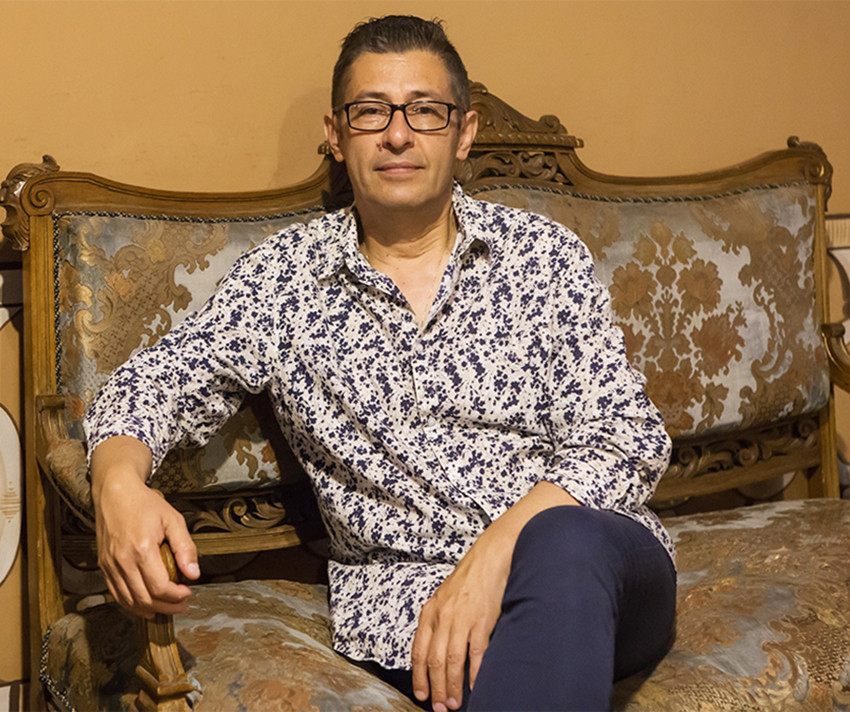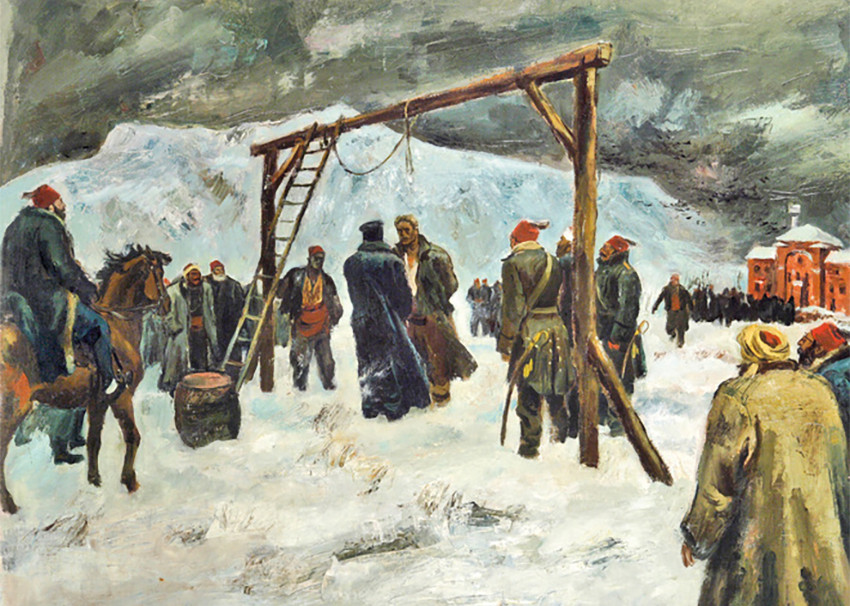"It's bitter cold, wood and stone are cracking, we've been with no food for two or three days, yet he sings and is always cheerful! In the evening - before we go to bed - he sings; in the morning, as soon as he opens his eyes, he sings again" - this is how Bulgarian poet and revolutionary Hristo Botev describes his close friend Vasil Levski, whom he described as an "unheard-of character" - "When we are in the most critical situation, he is just as cheerful then, as when we are in the best of situations".
According to other contemporaries of the Apostle of Bulgarian Freedom as Vasil Levski is lovingly called, even when he was traveling on his committee business, Levski constantly sang and adapted lyrics and songs to melodies already familiar to him.

"Personally, I have always thought that Levski's notebook is part of his spiritual heritage. We can find many things there. But it was a real surprise to me, many years ago, that the lyrics of popular songs of that time were written there. Songs that were sung, songs that he used to sing, and this is truly part of his inner spiritual world," Spassov commented.

"The elderly woman who tells the story of Raina Katsarova is called Grandma Petkana Hashova. She sang this song in Turkish. After that, Raina Katsarova recorded it in the Bulgarian National Radio as a keepsake, and in fact, when we were making the big film of the Bulgarian National Television entitled "The Songs of the Apostle, we translated this song into Bulgarian. It has a very strange, dramatic text - "Don't sing, nightingale, I have time, I am not in a hurry. I have neither a mother nor a father, don't sing, don't hurry, nightingale...". This is the message, really quite sad, sacred at times. But it's really strange, if you listen to it in the original, it sounds like a typical old Turkish folk song, in the whole style of a Turkish folk song. When the colleagues from the Turkish editorial office of the Bulgarian National Television translated it and we recorded it with accompaniment, it became Bulgarian. Because these songs here, in the Balkans, have a lot in common, but they also have a lot of differences.
Mary Boys Band have been preparing a series of concerts and presented a new song, called “Moeto momche” (My Boy). On Thursday, September 25, at the concert studio of Radio Varna at 7 p.m. Maria Mutafchieva and "her boy"..
More episodes from Radio Bulgaria's series presenting the Highlights of Bulgarian musical culture: Highlights of Bulgarian musical culture: Petko Staynov's Thracian Dances Highlights of Bulgarian musical culture: Emil Dimitrov's..
Beloslava will close the pages of summer and open the pages of the autumn-winter season with a special concert on September 18 at Kino Cabana in Sofia. Joining her on stage will be Jivko Petrov (piano), Dimitar Semov (drums), Dimitar Karamfilov..
The European Music Festival held in Sofia offers several bright events for music lovers in the autumn series of its 25th edition. From mid-October to..
Papi Hans heats up the chilly autumn with his new song — the hot Latin bachata “Nevinna” (Innocent). It comes after a series of ballads and is the first..

+359 2 9336 661
